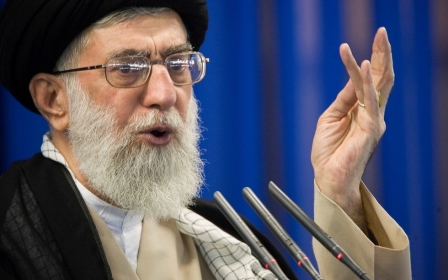US court hears arguments over Trump's Muslim ban
An attorney for the US Justice Department faced fierce questioning on Tuesday over Donald Trump's immigration ban as the government sought to overturn a suspension of the president's executive order.
A federal judge in Seattle issued a temporary stay on the order on Friday, but the Department of Justice filed an emergency motion at the court of appeals in an attempt to reimpose the restrictions.
The ninth US Circuit Court of Appeals in San Francisco heard arguments over whether to restore the immigration ban from Justice Department lawyers and an opposing attorney for the state of Washington.
"Congress has expressly authorised the president to suspend entry of categories of aliens," attorney August Flentje, special counsel for the Justice Department, said under intense questioning from a three-judge panel.
"That's what the president did here," Flentje said at the start of an hour-long oral argument conducted by telephone and broadcast live online. He said the president's executive order was valid under the US Constitution.
The judges pressed Flentje on his claim that the courts should not review the president's order.
The judges asked the US government attorney what evidence the executive order had used to connect the seven countries affected by the order with terrorism in the United States.
"These proceedings have been moving very fast," Flentje said, without giving specific examples.
He said both Congress and the administration had determined that those seven countries posed the greatest risk of terrorism and had in the past put stricter visa requirements on them.
The three judges appeared sceptical, with Judge Richard Clifton saying that the government's argument was "pretty abstract".
"I'm not sure I'm convincing the court," Flentje said at one point.
The court said it would likely rule this week but not on Tuesday.
In their temporary restraining order, the plaintiffs wrote that the "effects of the TRO (temporary restraining order) were positive and immediate, as immigration procedures began to return to normal, families reunited, stranded students and faculty began returning to our states, and longtime state residents were able to [return to] their homes".
Noah Purcell, solicitor general for the state of Washington, began his argument urging the court to serve "as a check on executive abuses".
"The president is asking this court to abdicate that role here," Purcell said. "The court should decline that invitation."
Purcell argued that Washington was harmed by the executive order as state university students were unable to return, citizens were deprived of visits by their relatives and legal residents were unable to return to their homes.
Trump's 27 January executive order barred entry to all refugees for 120 days, and to travellers from Iran, Iraq, Libya, Somalia, Sudan, Syria and Yemen for 90 days, triggering chaos at US airports and worldwide condemnation.
A judge pressed Purcell on his argument that the order violates the establishment clause of the First Amendment of the Constitution by discriminating against Muslims, saying that the population of the seven countries only amount to 15 percent of Muslims worldwide.
Purcell cited statements by Trump who had proposed banning all Muslims from entering the United States when he was a candidate in November 2015.
Appearing to lay the groundwork for a setback, the White House earlier sought to play down the significance of the upcoming ruling.
"All that's at issue tonight is the hearing is an interim decision on whether the president's order is enforced or not until the case is heard on the actual merits of the order," White House spokesman Sean Spicer told reporters. "That's why I think we feel confident."
The case against the Trump administration, brought by the states of Minnesota and Washington, is ultimately likely to go to the US Supreme Court.
Middle East Eye propose une couverture et une analyse indépendantes et incomparables du Moyen-Orient, de l’Afrique du Nord et d’autres régions du monde. Pour en savoir plus sur la reprise de ce contenu et les frais qui s’appliquent, veuillez remplir ce formulaire [en anglais]. Pour en savoir plus sur MEE, cliquez ici [en anglais].




